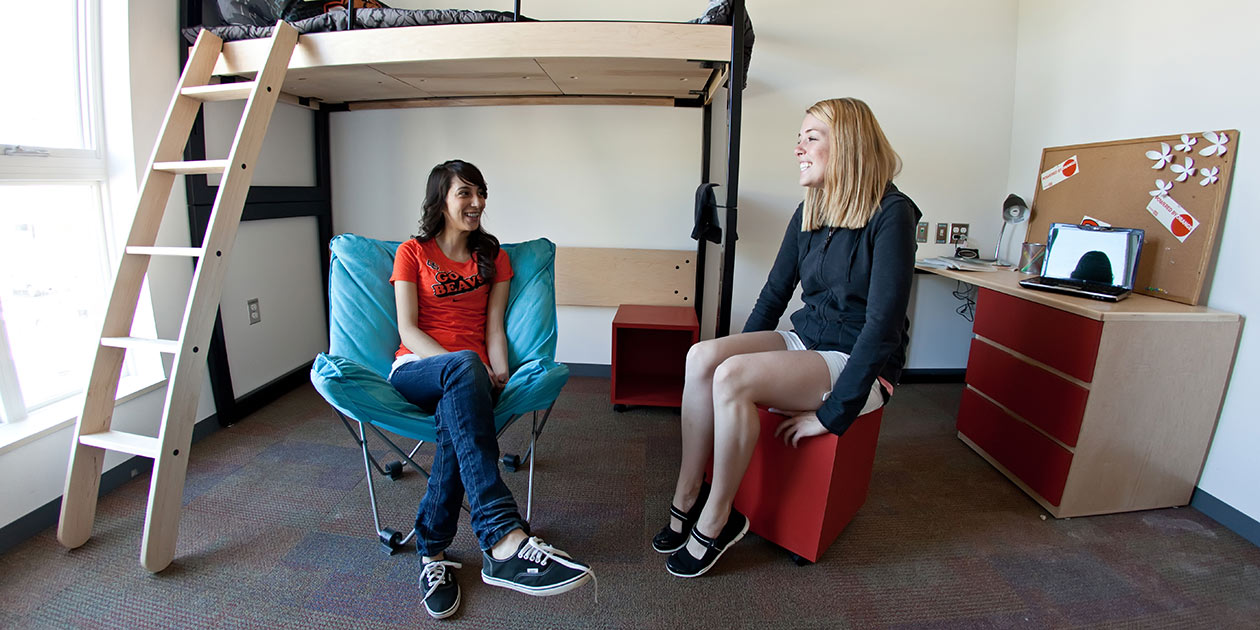Dorms are loud. The showers get clogged, and at their worst they become squalid. But colleges shouldn’t be tempted to replace their first-year accommodations with tony apartments and en-suite bathrooms, because the lifelong learning and professional relationships needed for college success are forged in those cramped corridors.
Dan Chambliss, learning expert and co-author of the book How College Works said in our recent webinar, Improving the College Experience, that separating first-year students into individual apartments was a terrible idea compared with the traditional, long-hall, four-students-to-a-room dorms. “It isolates them at exactly the time where the most important thing is to make friends and meet other people,” he says.
And, added Chambliss, in a residential situation, students need to make friends early on for school to be successful for them. According to Chambliss’s extensive research, the value in higher education comes not from the information acquired during college, but from the personal connections that are made during learning.
The most valuable thing students take away from college are relationships, says @DanFChambliss. It's curious #highered doesn't focus on them
— Top Hat (@TopHat) March 16, 2017
The connection effect is so important that it even extends into architectural design. A school’s physical space should allow for the happenstance of students to mingle with one another, as well as their teachers.
“Just physically being in the same location works a lot,” said Chambliss. In Hamilton College’s social science offices, where Chambliss works, most of the faculty offices are at the front of the building, meaning staff regularly cross paths with students as part of their work day.
“In one college I know of, the president put her office literally in the middle of the main academic building, with a huge amount of traffic coming through,” Chambliss added. “She would sometimes even move her desk out into the hallway so she would be in close contact with students all the time.”
Of course, the first few weeks of a student’s academic career are as important as their social life. “It’s very important that the first classes that students have are good, right out of the gate,” said Chambliss. If their first classes are taught well, they will remain engaged—students will generalize based on the quality of their initial classes.
Institutions should hire the best possible teachers to do intro classes, says @DanFChambliss. The first classes should be great, energizing.
— Top Hat (@TopHat) March 16, 2017


